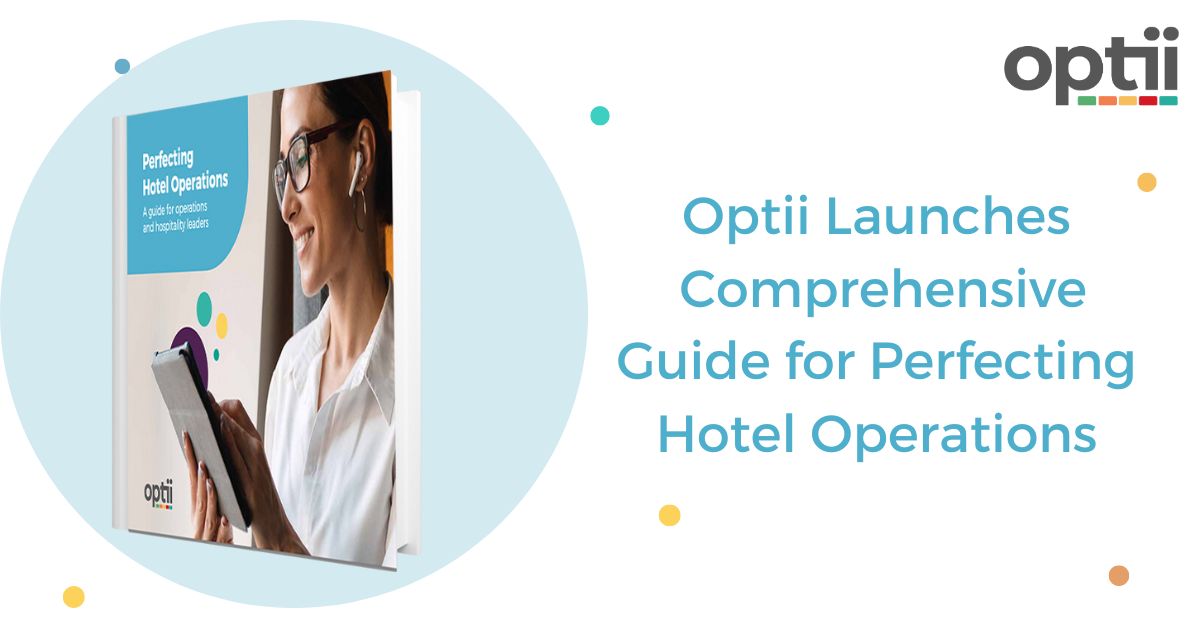Our third panel discussion focused what we have learned about optimizing profitability in 2020 as well as a look to the future where we ready ourselves for the rebound of travel and evolving hotel operations ready to meet this need. The panel, moderated by our CRO Deborah Pevenstein, included Chris Green, President & CEO at Chesapeake Hospitality, Chris Hemmeter, Managing Director at Thayer Ventures and Katherine Grass CEO of Optii. Below we’ve summarized some of the key takeaways from that discussion.
Evolving the hospitality operating model
The pandemic has caused many brands both big and small to reassess their technology needs. Chris Hemmeter observed that open API’s that allow an interconnected tech stack are forming the new heart of the hospitality operating model. This is opening up innovation in both the vertical and regional software development areas. Chris Green commented “there are lots of free thinkers out there that are developing interesting solutions. However, I see some companies tempted to hunker down to survive the current difficulties and that really concerns me. Innovation now is more essential than ever to develop services that interact with each other and to capture data that is useful. If you can create an environment of intelligent integration, you have the chance to totally change the guest experience and create something really special.”
Guests are also getting more and more comfortable with degrees of automation. Many hotels are now offering 100% automated guests experiences which appeal to some types of traveller. The key is to judge the audience correctly to use technology to enhance their experience rather than detract from it. However, as IT departments slim down along with the rest of the industry, IT vendors have to be mindful that there are no longer expansive teams of people available to oversee complex integrations. Managers are looking for solutions that work quickly and intuitively, helping staff to work smarter in the matter of hours as opposed to days or weeks.
The panel observed more flexibility and regionalization being introduced by hotel groups in general. Katherine Grass commented “I have certainly seen brands reprioritize their IT needs and a push to regional and alternative decision-making flows to reflect the different needs of each market.”
Advice for survival and success
Front of mind for everyone in the sector though is financial survival and to this point, our panel felt strongly that the focus should not be on the usual competitive measures like market share. It is all about cashflow and getting the most rooms rented as possible. Therefore, front of mind should be occupancy volume, revenue per person and ultimately net operating income (NOI).
Our panel commented that the well documented pandemic related shift many hotels are
experiencing from business to leisure travelers brings with it revenue opportunities as well as threats that need to be correctly tracked and managed. On the upside, leisure guests tend to spend more on ancillary services so there are opportunities to increase the revenue per guest if the right products are offered and restaurants are appropriately stocked for the new type of guest. However, by the same token, this revenue can be quickly eroded if the operations side of the business is not recalibrated as leisure rooms take longer to clean on average than business rooms. Optimizing operations staff and using data to correctly understand their workload will be key to planning an efficient team. Not only is it the room servicing times that have changed but as hotels operate with hibernated floors and skeleton staff, there can there be significantly longer travel time between rooms for one person to complete the daily task list. Optii has seen that this is another area where data insights have helped hotels to significantly improve efficiency and save money.
Addressing the tension between surviving the ‘now’ and planning for the future
If it is ‘all hands-on deck’ to fill rooms and keep the revenue coming in, this inevitably does not leave the skeleton staff running hotels with the time and headspace to innovate and roll out new technology stacks. Chris Hemmeter asked Chris Green how he manages this tension: “While we are absolutely fully focused on filling rooms right now, our management teams, from director level and upwards are all encouraged to innovate and focus on possibilities to create new and interesting pathways in the future. They also know to challenge our technology and industry partners to innovate and deliver us options that will be unbelievably seamless for a busy team”.
Katherine Grass commented that businesses really need to find a way to take that first step towards being in the most optimal state they can for when guests return. These are most definitely scary times in the industry and embarking on new initiatives now may feel like a step too far right now, but the right technology developers can work in partnership with hotel owners and lift some of that burden.
Long term viability of the industry
The panel agreed that all the indicators they see point towards huge pent-up desire for travel. When the population is able to travel again, their feeling was that there would be a big surge in demand for hospitality. Chris Hemmeter commented “whether it is Skift or Google you are using as your barometer, there is no doubt in my mind that the snap back will be intense, and hotels need to prepare now to be ready. Smart hotels are automating the services that guests don’t see and thinking through how labor costs can be managed more efficiently without affecting the guest experience. They are using this time as a catalyst to fundamentally rethink and improve how they deliver hospitality”.
For further insights from this series, read the overviews of our first two panel discussions:
“Traditional hotel roles have changed: ensuring staff productivity and memorable guest
experience.”
“Helping hotels navigate COVID-19 related shifts effectively and efficiently”






